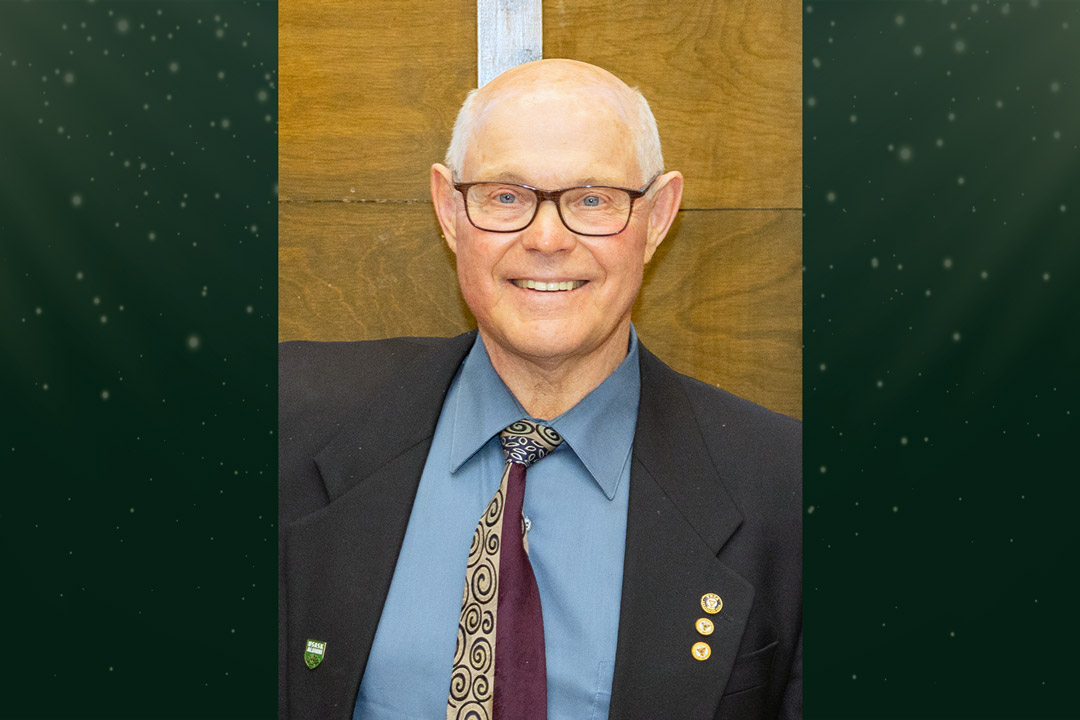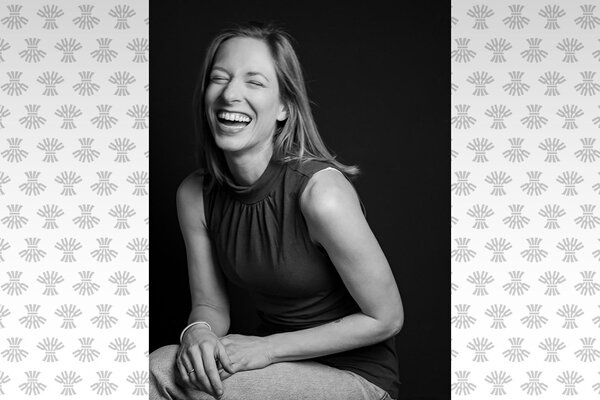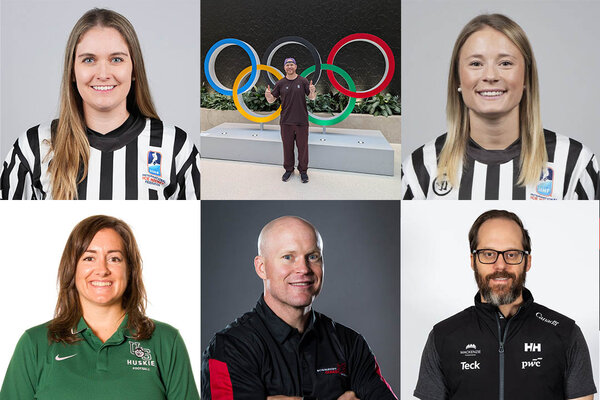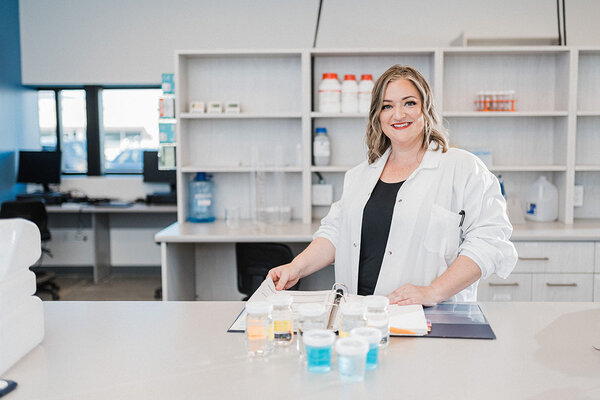
Three questions with Alumni of Influence Award recipient Gordon Beach
Gordon Beach (BSc’73) is one of four outstanding recipients who are being presented with the prestigious award
Gordon Beach (BSc’73) has always encouraged others to “pay it forward.”
Beach’s philanthropy, leadership and volunteer work is why he was selected as a recipient of an Alumni of Influence (AOI) Award from the College of Arts and Science this year.
Based on his experience at the University of Saskatchewan (USask), Beach created the Ore Gangue Alumni Bursary Fund. The Ore Gangue is the student society and alumni group for the Department of Geological Sciences.
Since the bursary was created, he has encouraged other alumni to donate to the fund, which supports students based on financial need, academic performance and contributions to the Earth sciences student community. The fund has financially supported more than 35 students in the Department of Geological Sciences so far.
Beach accepted the award in front of many of his former classmates, colleagues and friends at the 90th Ore Gangue Reunion in May. He is one of four recipients who have been selected for an AOI award this year.
The AOI Awards celebrate and recognize outstanding alumni from the College of Arts and Science. The recipients’ remarkable achievements and contributions have an impact on their respective fields, communities, and the university.
If there is a College of Arts and Science graduate who is making an impact in their community, submit a recommendation. Recommendations can be submitted at any time during the year.
The College of Arts and Science asked Beach a series of questions about his experience at USask and his advice for current students. This interview has been edited for length and clarity.
Q: What is your favourite memory about your time in the College of Arts and Science?
There were so many different kinds of experiences that we had as students. It fell into a couple of different things: the in-class experience and then the out-of-class experience.
In-class experiences, it had to have been in my final year when the faculty in the Department (of Geological Sciences) introduced a new class – I think it was Geology 408. It was called Global Considerations and it dealt with the synthesis of so many things that we’d learned about to that point ... and how all these things made sense and help us understand what’s really going on in this big wide world.
In field school in Zortman, MT, most geology students in their third and fourth year take a class in a very remote part of the state ... It was the first chance we got to use our skills and it was also a great time of good comradery with our fellow students. (Faculty) came along too.
I had spent the morning with Dr. Glenn Caldwell, learning about rocks and learning about how to map these outcrops and put onto a map what we were seeing in the field and properly describing them ... We stopped for lunch, and it was a nice sunny day.
We were on the side of a big, long slope and he looked at me with a big grin on his face and he said, “You’re about to learn about one of the rituals of doing field work in geology.” He took one of the big rocks and rolled it down the hill. We both laughed. We spent the rest of the afternoon rolling rocks. He called it a rite of passage for geologists to learn about the joys of rolling rocks.
Q: How did your Arts and Science education help you in your career?
It was the foundation of my career. I couldn’t have done my job in the oil and gas business as a geologist without the basic training that you get as an earth scientist at university. It was the essence of what I did. The education itself taught me how to learn through your whole career.
You never stop learning. It gave me a small inkling of how much knowledge there really was out there to learn and at that point I actually knew very little. It also made me aware that I was about to be exposed to a big world that had a whole lot more information and I had better learn it.
Q: What advice would you offer to current students in the College of Arts and Science?
What I would give to students for advice is that it’s not about academics and it’s not about books, but it’s about life and how you live your life and how you view the world.
I think in a polarized world, we need to look for common ground. We seem to be factioned off into camps that are almost at war with each other. I would advise students to be open to ideas, to adopt core values for their lives—that they live their life for the benefit of all and not just themselves.
Base your decisions and actions on truth, fact, and science, not emotion or ideology. Promote a culture and live your life in a manner that shows people should be recognized and valued for their beliefs and their merit and integrity. More importantly, take responsibility for your personal acts and decisions.


